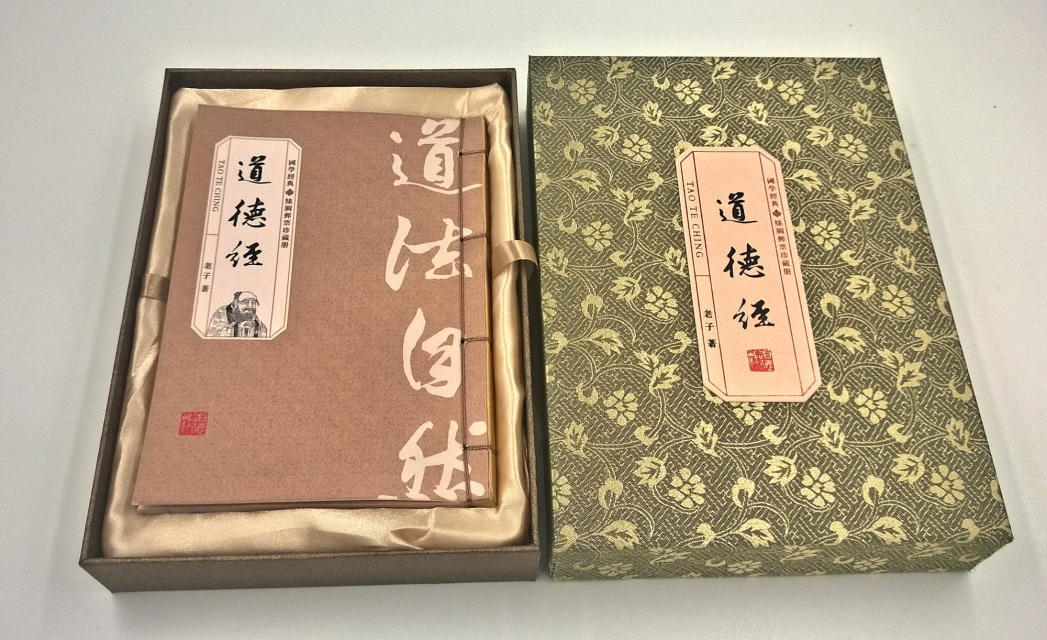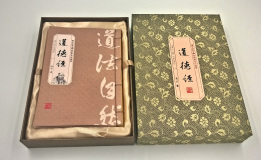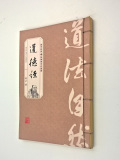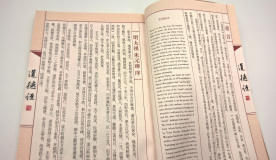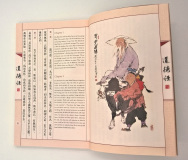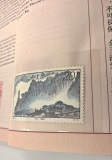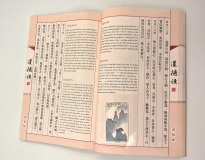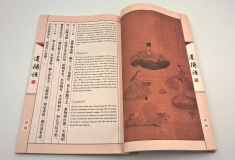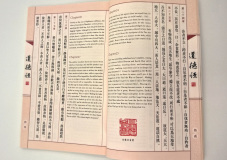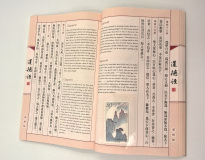- Shop
- >
- Chinese Classics
- >
- Classic Literature
- >
- Tao Te Ching(道德經, pinyin: Dao De Jing, ca. 500 BC), Collectors’ Edition Printed on Silk Sheets with English Translation and Chinese 4-Stamp Set of Wudang Sacred Taoism Site.
Tao Te Ching(道德經, pinyin: Dao De Jing, ca. 500 BC), Collectors’ Edition Printed on Silk Sheets with English Translation and Chinese 4-Stamp Set of Wudang Sacred Taoism Site.
SKU:
$75.00
$75.00
Unavailable
per item
- 6 7/8 x 4 11/16, 40 pages on silk sheets
- Printed on silk sheets, traditional Chinese string-bound
- Collectible 1995 Chinese 4-stamp set of Wudang Mountains - the sacred Taoism mountains
- Deluxe box
This is a deluxe collectors' edition printed on silk sheets of the Chinese classic text, Tao Te Ching(道德經, pinyin: Dao De Jing), with 1995 collectible Chinese four-stamp set and English translation by James Legge.
The Tao Te Ching is a fundamental text for Taoism. According to the ancient Chinese legend, Tao Te Ching was written by Lau Tzu (老子, ca. 600 BC) during the Spring and Autumn Period (770 BC – 403 BC). However, some of the well-known contemporary Chinese scholars, such as Feng Youlan, believed that Tao Te Ching was written or collected during the Warring States Period (ca. 403 BC – 221 BC) by an unknown author or authors. The oldest excavated text of Tao Te Ching on bamboo sheets from Guo Dian Chu Jian in Hunan Province in 1993 dates back to the late 4th century BC.
This collectors' edition is printed on silk sheets, a reflection of the fact that, in ancient China prior to the invention of paper and printing, such classics were often calligraphed on silk sheets. The text of this edition is based on the handwritten calligraphy by the famed Ming Dynasty calligrapher, Zhao Mengfu (ca. 1254 – 1322 AD), accompanied by a preface written by Zhu Yuanzhang, the founder of Ming Dynasty. To add value to this collector’s edition, it contains a set of four Chinese stamps issued in 1995 depicting the sacred mountains of Taoism, Wu Dang Mountains situated in Hunan Province, China.
The English translation for the text in this edition is based on the eminent Scottish sinologist, James Leggie (1815 – 1897).
Sold Out

